16 Nights / 17 Days
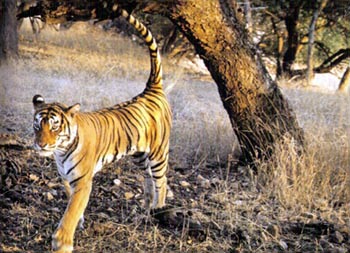
Train Ticket for Nagpur
arrival-departure Transfers as per Itinerary
english Speaking Driver & Car
sight-seeing Tours as per Itinerary
all Sightseeing By A/c Car
gasoline *toll Tax, *road Tax, *parking, *passenger Tax,
drivers Food & Accommodation During the Tours.
Pick up from Airport & check inn at the hotel.
The capital of India was destroyed and rebuilt a number of times, and virtually carries in its bosom the history of 07 cities. The present New Delhi was designed by Edwin Lutyens, and its main architect was Herbert Baker. In 1911 the capital of the British Raj was shifted from Kolkata to Delhi. Today it is the seat of power of the country and a major Gateway to the country for the tourists.
After breakfast enjoy full day city tour. Old Delhi visit Raj Ghat which is located on the banks of the river Yamuna, This is Mahatma Gandhi’s Memorial, where he was cremated following his assassination in January 1948. The memorial lies in the midst of landscaped gardens and made of a simple square platform of black marble inscribed with his last words “Hey Ram”. Red Fort (closed on Monday) the 17th century imposing fortress built in red sandstone is surrounded by a huge boundary wall 33m high. Inside are exquisite palaces and beautiful gardens. Opposite the Red Fort lies Jama Masjid (Friday Mosque) made of red sandstone and white marble, completed in 1656. It is India’s largest mosque where more than 20,000 people can kneel in prayer at one time.
New Delhi visit Humayun’s Tomb, built by his wife Haji Begum in the 16th Century. An early example of Mughal architecture considered the predecessor of the Taj Mahal. The Qutab Minar, the landmark of Delhi, a huge tower of victory started in 1199 and completed in 1368. The Minar is 72.5m high with a diameter at the base 14.4m and 2.7m at the top. Proceed to the Rashtrapati Bhawan (Drive Pass) once the Viceroy’s residence and now the official residence of the President of India. Designed by Lutyens, it combines western and eastern styles - the dome reflects the Buddhist stupa, the chhattris “Hindu” and the graceful colonnades very “British”. It has 340 rooms. The India Gate (42m), commemorates the 70,000 Indian soldiers who died in the 1st world war. 13516 names of British and Indian soldiers killed in the Afghan War of 1919 are engraved on the arch and foundations. Under the arch, glows the Amar Jawan Jyoti flame commemorating Indian armed forces’ losses in the Indo-Pakistan war of 1971. Overnight stay at hotel.
After breakfast transfer to Rly St. to board in Train for Nagpur. Over night in Train.
Arrive Nagpur & leave for Pench National Park. Arrive & chek inn. After noon Safari in the Park. Overnight stay at hotel.
After breakfast leave for Kanha. Kanha has sometimes been called the N'Gorongoro of India. The simile is apt, albeit Kanha is far greener and its cordon of hills far more densely wooded. Unlike Tanzania's N'Gorongoro, the Kanha valley is not a volcanic crater, though the enclosing hills are a consequence of geologically ancient volcanic activity. The horseshoe-shaped Kanha valley, which accounts for nearly a third and the oldest part of the Kanha National Park, is bound by two distant spurs emanating from the main Mekal ridge, forming its southern rim. The spurs, in their gently tapering traverse, nearly close in the north leaving but a narrow opening for the meandering Sulkum or Surpan river, the valley's main drainage. Herds of the Kanha miscellany, the axis deer (chital), the swamp deer (barasingha), the blackbuck (hiran), the wild pig and occasionally the gaur, throng the central parkland of the valley, providing the basis for the comparison with N'Gorongoro. With its confiding herds and relatively tolerant predators, Kanha offers an almost unrivaled scope to a keen photographer of Indian wildlife.
Evening safari at the Park. Overnight stay at hotel.
Morning & Afternoon safari at the park. Overnight stay at hotel.
After breakfast leave for Bandhavgarh. Arrive & check In to the Hotel. Bandhavgarh national park have a very long history. Set among the Vindhya hills of Madhya Pradesh with an area of 168 sq miles (437 sq km), it contains a wide variety of habitats and a high density of game, including a large number of tigers. Bandhavgarh was declared Project Tiger Reserve in 1993. Bandhavgarh national park have a very long history. Set among the Vindhya hills of Madhya Pradesh with an area of 168 sq miles (437 sq km), it contains a wide variety of habitats and a high density of game, including a large number of tigers. Bandhavgarh has been a canter of human activity and settlement for over 2000 years. Legend has it that Rama, hero of the Hindu epic, the Ramayana, stopped at Bandhavgarh on his way back to his homeland after defeating the demon king Ravana of Lanka. Two monkey architects, who had engineered a bridge between the isle of Lanka and the mainland, are said to have built Bandhavgarh's fort. Later Rama handed it over to his brother Lakshmana who became known as bandhavdhish, "the lord of the fort" - a title still used by the present "lord of the fort," the former Maharaja of Rewa. Lakshmana is the particular god of the fort and is regularly worshiped in a temple there. In the Bandhavgarh you can also enjoy tigers sighting from elephant back. Government elephants belonging to the Forest Department and equipped with walkie-talkies also in Bandhavgarh. However, there are many tigers in the park and elephants are able to take you up steep, rocky hillsides and down marshy riverbeds which are impassable to vehicles.
Morning & Afternoon safari at the park. Overnight stay at hotel.
Morning safari at the park. After Lunch leave for Panna. Tiger the king of the jungle, roams freely in this secure, though a bit small habitat alongwith his fellow beings – Leopard (Panther pardus), Wild Dog (Cuon alpinus), Wolf (Canis lupus), Hyaena (Hyaena hyaena) and Caracal (Felus caracal), smaller Cats., Sloth Bear, Sambar - the largest of Indian Deers, Chital and Chowsingha, Nilgai and Chinkara and reptiles including the python and crocodiles.
Birdwatchers - The forests at Panna, as well as the water dams are a bird haven for migratory as well as the local birds which number over 300 and include the Shy paradise fly catcher, the rare Serpent Eagle, white necked Stork, barheaded Goose, honey Buzzard, king Vulture, blossom headed Parakeet, slaty headed Scimitar Babbler, and the spectacular varieties of Kingfisher. A large number of birds are spotted in the park. Evening safari at the park.
Overnight stay at hotel.
Morning safari at the park. After breakfast leave for Khajuraho. Arrive & check inn at the hotel. Khajuraho – a small town located in the heart of India and famous for its erotic temples which were built by the Chandela rulers in a short span of 100 years from 950-1050 AD Out of 85 only about 20 have survived the ravages of time. Temples here fall in three distinct groups namely western, eastern & southern and belong to two different religions – Hinduism and Jainism. These Hindu temples with erotic carvings were built 1000 years ago with art and architecture merged to perfection. The temples are in three groups in an area of about 8 square miles. The western group, largest and most important, the eastern group is that of the Brahmin and Jain shrines close to the present Khajuraho village and the Southern group which houses the Chaturbhuj temple. Visit Western & Eastern Temple.
Overnight stay at hotel.
After break fast leave for Orcha. Arrive & check in to the Hotel. After lunch half day city tour. Overnight stay at hotel.
After breakfast leave for Agra. On rout visit Gvaliar Fort.
A medieval city on the banks of the Yamuna River. It was founded by Sultan Sikandar Lodi in the year 1506. Agra achieved fame as the capital of the Mughal emperors from 1526 to 1658 and remains a major tourist destination because of its many splendid Mughal-era buildings. Most notably the Taj Mahal, Agra Fort and Fatehpur Sikri, all three of which are UNESCO World Heritage Sites.
Overnight stay at hotel.
Agra Fort was originally a brick fort and the Chauhan Rajputs held it. It was mentioned for the first time in 1080 AD when a Ghaznavide force captured it. Sikandar Lodi (1487-1517) was the first Sultan of Delhi who shifted to Agra and lived in the fort. He governed the country from here and Agra assumed the importance of the second capital. He died in the fort in 1517 and his son, Ibrahim Lodi, held it for nine years until he was defeated and killed at Panipat in 1526. He built several palaces, wells and a mosque in the fort during his period.
World famous monument The Taj Mahal, Overlooking the River Yamuna, the Taj Mahal is a classic example of Mughul architecture, with the Taj itself built as a mausoleum at the northern end of an extensive formal walled garden designed in the charbagh style and structured on the Islamic theme of ‘paradise’. The whole site was built by Shah Jahan between ad 1632 and 1653 as the final resting place of his favourite wife Arjumand Bano Begum (also known as Mumtaz Mahal) who died in ad 1631 shortly after giving birth to their fourteenth child. Upon his death in ad 1666, Shah Jahan was buried alongside his wife in the Taj. (Closed on Fridays). Overnight stay at hotel.
After breakfast leave for Ranthambore. On rout visit Fatahpur Sikiri.
Fatehpur Sikri, which is a beautiful and deserted medieval city, built by Mughal Emperor Akbar the Great in the 16th century to serve as the capital of his vast empire. It was mysteriously abandoned after 15 years due to scarcity of water. Today, it is perfectly preserved as a ghost city built at the height of the empire’s splendor. See Darbar-e-Aam, Palaces, Panch Mahal Taansen Seat & great Sufi Sent doom etc.
After Lunch leave for Agra. Since becoming one of the original areas under Project, the park has recovered much of its natural beauty & dry deciduous forest has been restored. Ranthambore is considered one of the best tiger reserves in the country.
Overnight stay at hotel.
Morning & Afternoon safari at the park on sharing basis. Overnight stay at hotel.
Morning safari at the park. After breakfast leave for Jaipur. Founded in 1727 by Maharaja Sawai Jai Singh - II, the ruler of Amber, Jaipur was the first planned city in India.This town is also referred as Pink city for the colour of buildings in its wonderful old city. The city was painted pink to honour the visit of Prince Albert of England in 1882.
Arrive & check In to the Hotel. Overnight stay at hotel.
After Brekfast excursion to the Amber City Fort situated 130m high with the Aravalli hills around and 11 km north of Jaipur. It was the ancient capital of the Kachhawaha Rajputs till 1037. Ride the colourfully painted elephants up the hill, admire the massive gateways, courts, stairways, pillared pavilions and palaces the recall the glory and wealth of Amber’s association with the Mughals.
Visit the City Palace (still houses the erstwhile Royal family); Jantar Mantar – The Royal Observatory and Hawa Mahal (Palace of Winds, with 1043 windows) - built for the royal ladies to watch the activities on the market street below without being observed themselves. Overnight stay at hotel.
After Lunch leave for Delhi arrive & transfer to the airport to catch your flight home with unforgettable memories.
We Deal in Tour operator Services Read More...
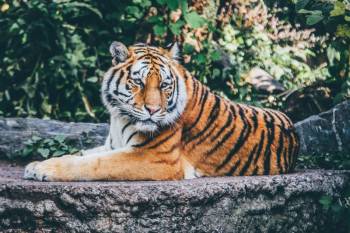 7D/6N
7D/6N
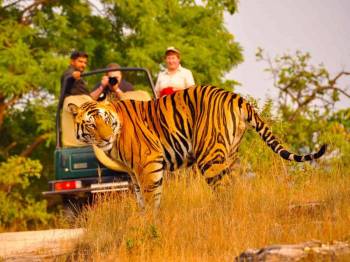 8D/7N
8D/7N
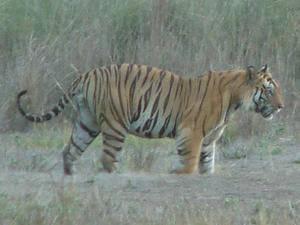 10D/9N
10D/9N
Ranthambore - Jabalpur - Kanha - Delhi - Bhandhavgarh - Umria
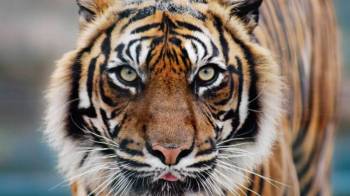 13D/12N
13D/12N
Indian Tiger with Khajuraho & Agra Tour
Ranthambore - Kanha - Bandhavgarh - Panna - Delhi
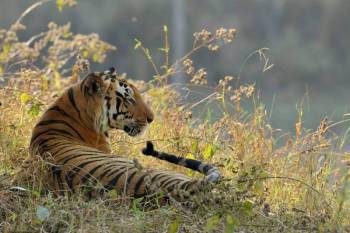 9D/8N
9D/8N
Taj Mahal with Kanha National Park Tour
Jaipur - Agra - Fatehpur Sikri - Delhi - Bhartpur
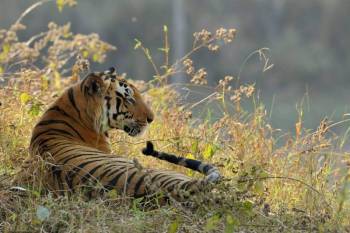 15D/14N
15D/14N
Agra-jaipur with Tiger Parks & Khajuraho..
Agra - Jaipur - Khajuraho - Bharatpur - Bandhavgarh - Panna
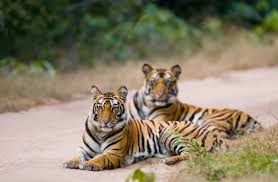 16D/15N
16D/15N
Taj Mahal with Tiger Parks & Khajuraho ..
Khajuraho - Varanasi - Jaipur - Bharatpur - Agra - Kanha
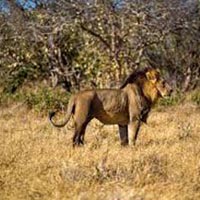 17D/16N
17D/16N
4 Countries: Kenya - Vic Falls - Botswan..
Gaborone - Nairobi - Lusaka - Dodoma
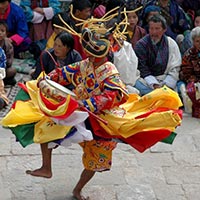 17D/16N
17D/16N
Bhutan Enchanting Tsechu-Festival Tour
Paro - Thimphu - Punakha - Wangdue Phodrang - Trongsa - Bumthang - Mongar - Trashig..
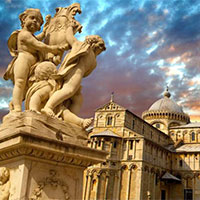 17D/16N
17D/16N
Rome - Pisa - Prato - Venice - Padova - Milan - Lugano - Engelberg - Lucerne - Colo..
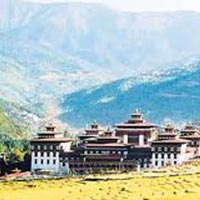 17D/16N
17D/16N
Mumbai - Rome - Pisa - Padua - Innsbruck - Salzburg - Interlaken - Geneva - Paris -..
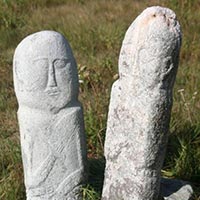 17D/16N
17D/16N
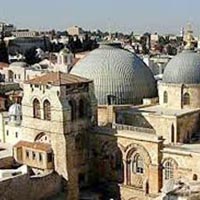 17D/16N
17D/16N
Apollonius Vacation Package: 17 Days
Ankara - Konya - Canakkale - Haifa - Acre - Nazareth - Istanbul - Istambbul - Efeso..
 17D/16N
17D/16N
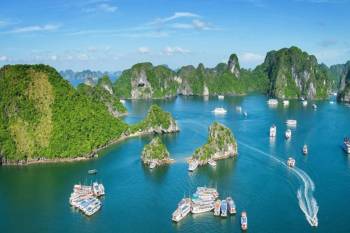 17D/16N
17D/16N
17 Days Package Tour Indochina Panorama
Hanoi - Ho Chi Minh City - Siem Reap - Luang Prabang - North Pole - Cantwell - Llan..
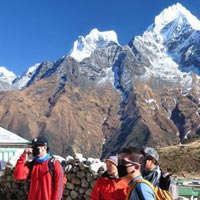 17D/16N
17D/16N
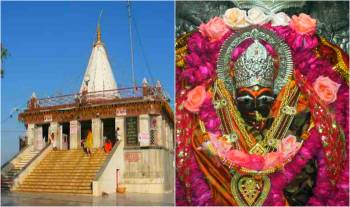 8D/7N
8D/7N
8 Days Uttar Pradesh Tour Package From V..
Prayagraj - Varanasi - Khajuraho - Ayodhya - Chitrakoot
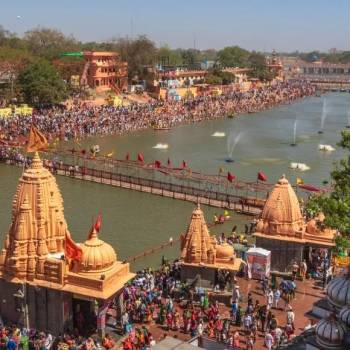 7D/6N
7D/6N
Madhya Pradesh Tour Package 6 Night - 7 ..
Gwalior - Jabalpur - Khajuraho - Shivpuri - Kanha
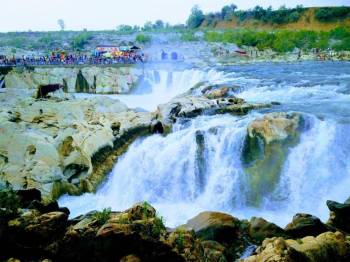 7D/6N
7D/6N
7Days Jabalpur - Kanha - Khajuraho - Gwa..
Gwalior - Jabalpur - Khajuraho - Kanha
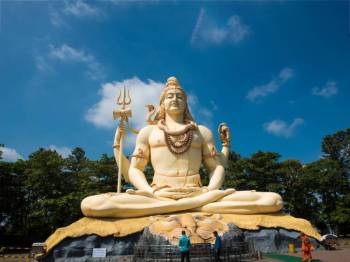 6D/5N
6D/5N
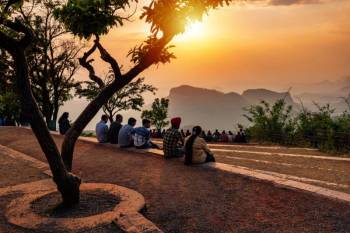 6D/5N
6D/5N
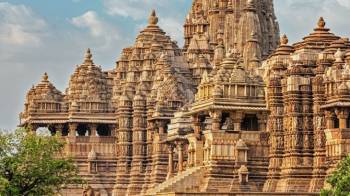 4D/3N
4D/3N
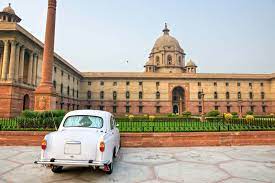 13D/12N
13D/12N
Golden Triangle Tour With Varanasi
New Delhi - Jaipur - Agra - Varanasi - Khajuraho - Orchha
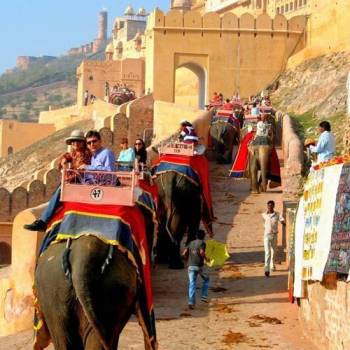 19D/18N
19D/18N
Rajasthan Tour Package with Temples of V..
New Delhi - Bikaner - Jaipur - Jaisalmer - Jodhpur - Mandawa - Pali - Pushkar - Uda..
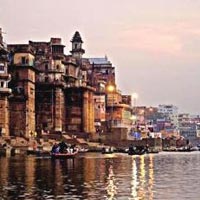 10D/9N
10D/9N
New Delhi - Jaipur - Agra - Jhansi - Khajuraho - Varanasi